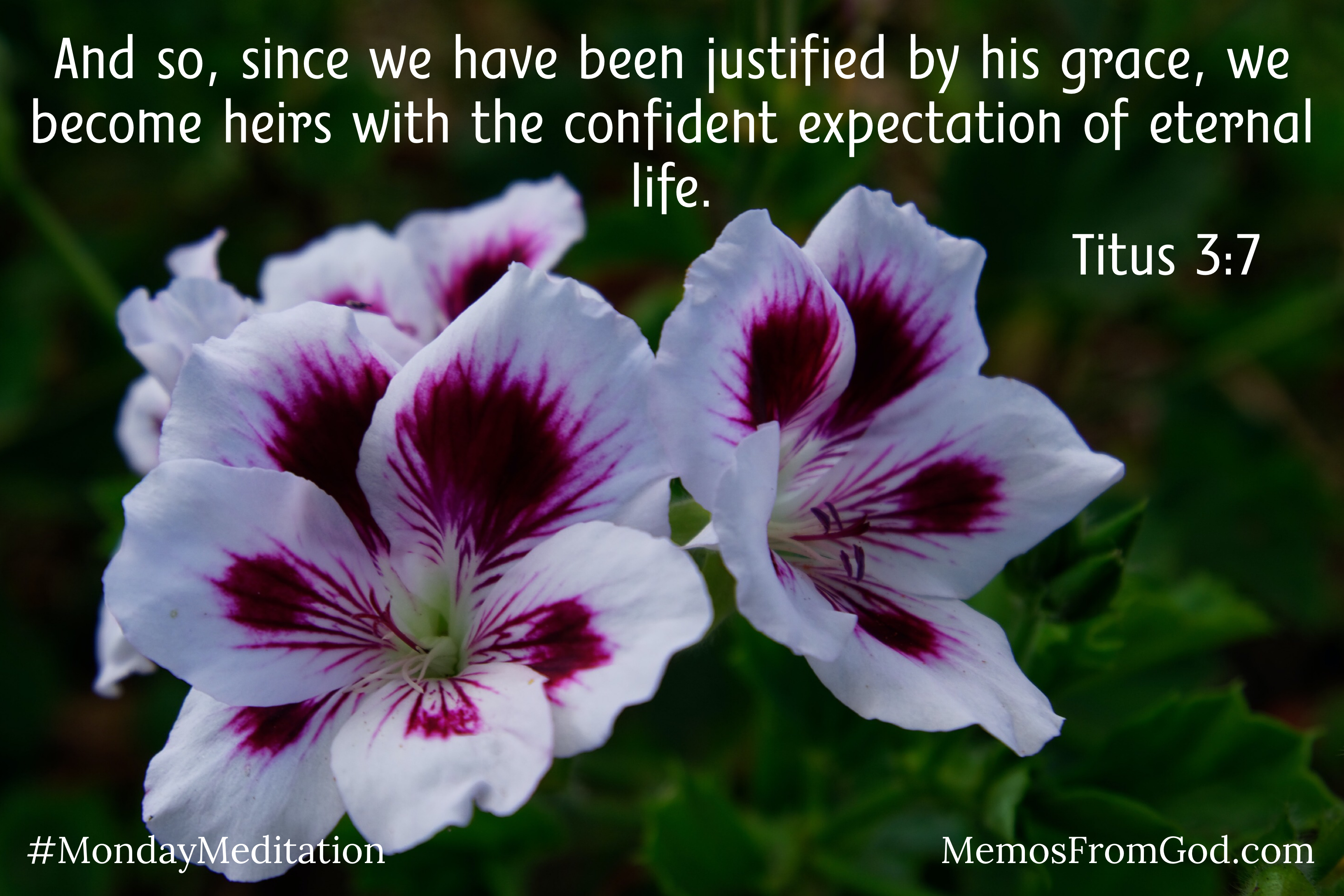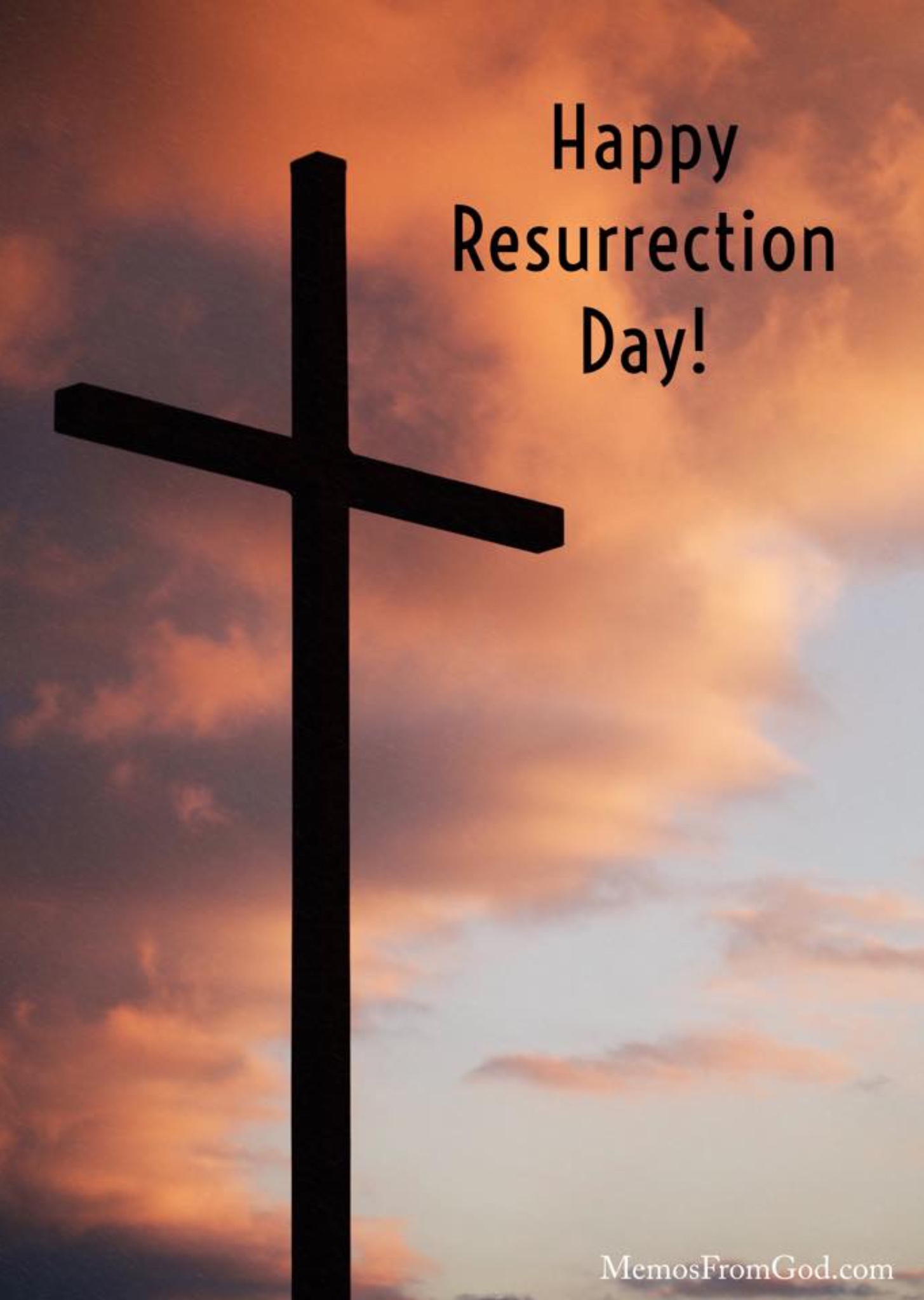

Attempting to Understand the Bible



May you be blessed this Easter!


What is your greatest affliction? Most of us could probably think of several things to choose from: a physical ailment–either illness or injury, a desperate financial situation, joblessness, a difficult family member, co-worker, or neighbour. Even a friend who requires too much of our time can be a burden. Certainly we all have one challenge or another that we wouldn’t be sad to say good-bye to.
I think the Apostle Paul believed that his greatest affliction was pride, despite the fact that he faced constant opposition from people around him, beatings, shipwreck and even a stoning. (II Corinthians 11:24-25) And besides being struck blind on the road to Damascus, (Acts 22:6-11) the dangers he faced in his travels, hunger, sleepless nights, jail time, and the hard work he did just to survive. (II Corinthians 11:26-27)
In II Corinthians 12:7-10 Paul tells us about the thorn in his flesh, the trouble that bothered him enough that he repeatedly asked the Lord to remove it from him. Twice in the original language of II Corinthians 12:7, Paul states that the reason for the thorn was so that he would not become arrogant. It was there to keep his pride in check. We don’t know specifically what this thorn in the flesh was, only that it was troublesome enough that this man who had already endured so much, asked God three times to relieve him of the affliction.
There are people who believe that if you have enough faith, God will give you whatever you ask for, that He will never say no. I think Paul would have a different opinion, because God did not take away Paul’s thorn. Instead, He gave him something better: grace. God said, “My grace is enough for you.” Paul knew that to have God’s grace, the power of Christ working in him, was much more valuable than relief from his affliction. I think that Paul’s thorn was never specified, because God gives His grace to us too. Whatever we have to go through, God’s grace is enough. The more trials we have, the more grace we have available to us. Sometimes in the midst of trouble we don’t always see it that way, but God’s promises never change. If God’s grace was enough for Paul, it will be enough for us too.
Why do bad things happen to good people? If you haven’t asked that question before yourself, you have very likely heard it asked by someone else. We have all known people who have gone through incomprehensible tragedy, and we have wondered why. Some will even ask what the person did to incur God’s wrath? What sin in their life is unconfessed? Why is God trying to get their attention? If you are one of the friends who has tried to help a loved one by gently trying to discover which sins are the root cause of their misfortune, please stop. Jesus very clearly told His disciples that a man’s affliction was not a result of his sin or his parents’ sin. (John 9:1-3) That is so much more true since Christ paid the price for all of our sins on the cross. (John 3:17)
So, punishment for sin is not the answer, but hardships do still serve a purpose. First of all, this life is temporary. If life were easy, we would either be content to stay here for the rest of time, or we would have no incentive to focus on what matters for eternity. God wants us to realize that the important things are not the temporal, worldly things that we spend so much time and energy on. Sometimes it takes a tragedy to help us see what matters. Suffering also leads us to depend on God instead of our own strength and resources. We are humbled when we realize that we can’t manage everything on our own. When we are humble we can be pleasing and useful to God. (Psalm 51:17) God can work through us, and we can bring glory to Him.
An additional purpose for our suffering is outlined by the Apostle Paul in II Corinthians 1:3-4. Our trials give us the experiences we need in order to know how to comfort others who will go through similar struggles. Biblical comfort is not sympathy, but strength, not a way out of the problem, but a way through it. Our trials help us to understand what others are going through. I know of many people who have gone through unimaginable tragedy, but because of it have started organizations to help others who find themselves in similar situations. Many have testified that they have found their life purpose through the tragedy they endured.
Paul understood suffering, both external and internal. (II Corinthians 4:8, Romans 8:35, Philippians 1:17, II Corinthians 7:5) He faced many hardships, (II Corinthians 11:23-27), more than most of his listeners (or readers) ever would. But he did not view these circumstances as being outside of his faith in Christ. He did not wonder if his faith wasn’t strong enough. He had had a personal encounter with Christ, and he knew that these sufferings were a part of his mission, his purpose. (Acts 26:14-18) He also knew that no matter what hardships or afflictions he had to face, God would provide more than enough grace, and comfort (strength) to get through them. (II Corinthians 1:5, II Corinthians 12:9) And God would use them for His good purposes. (Romans 8:28)
In last week’s post I suggested that Paul would encourage us to give up some of our freedoms for the benefit of our weaker fellow-believers. But Paul did not advocate giving up the freedom that was paid for by Christ’s blood just to go back to the legalistic way of living that had been commonplace before Christ’s arrival on Earth. And I’m sure that he considered the dietary changes to be a temporary accommodation. Once believers come to truly understand their freedom in Christ, they would grow beyond those food restrictions.
In Galatians 4:4-7 Paul explains to the people of Galatia that God sent Christ to Earth to redeem us from our bondage to the law, and to give us the full freedom of being a child of God. When I use the word law here, I am referring to religious law. The Bible clearly tells us to respect those who are in authority over us, (I Peter 2:13-17, Romans 13:7), but that does not include adhering to legalistic religious practices. Just before this passage, in Galatians 4:1-3, Paul uses the example of a child in a human family. In Roman society, minor children were cared for, taught and disciplined by slaves. Since children were required to obey slaves, they were no better than slaves themselves. But when they reached the appointed age set by their father, they became heirs, with all the rights and inheritance of an heir’s position in the family. Likewise, at a time set by our Heavenly Father, when he sent His Son to redeem us, we became heirs in our heavenly family.
Just as the child had to obey his earthly caregiver until his position was upgraded, Paul’s listeners and their ancestors had had to obey Mosaic law until the appointed time. Then they had the opportunity to move into the position of co-heir with Christ. (Romans 8:14-17) They were given an invitation to join God’s family with the same rights of family membership that Christ has. We have been given that opportunity since the day that Christ paid the penalty for our sins. This was and is a gift of grace. There are no rules, rituals or practices that we must follow to earn it. Yes, we have to make the choice, but once we do we become inheritors of the kingdom of God. Can you even begin to imagine? Many people can’t, which is why they go back to the rituals and rule-following that make them comfortable. There is no need, and it is a sign of immaturity, of remaining a child that needs to be restricted. Accept the freedom that you have in Christ.
Today's post was written by Ann Mainse.
---------
Confessions of a Weary Soul
Don’t you love it when God proves that He definitely has your number? Over the last few days, I’ve been feeling tired… worn out. Not just physically, but mentally, emotionally. If I’m to be totally honest (not a new thing, I promise!), I think sometimes I grow weary in well-doing. I know the verse in Galatians 6:9 that tells me not to, but sometimes I can’t help it. Have you ever been there? Maybe you’re there now. You’re doing all the right things, with all of your might… and you’re tired. Drained. It’s like you’re running on a treadmill (very good for you) and your energy level is depleting fast (not so good). You know you’re getting close to the end of your reserve, but the treadmill isn’t slowing down. What do you do? Well, if you’re me, you read what God has put right in front of you (like I said, He has my number). Have a look at where I found myself reading today…
Are you tired? Worn out? Burned out on religion? Come to Me. Get away with Me and you’ll recover your life. I’ll show you how to take a real rest. Walk with Me and work with Me—watch how I do it. Learn the unforced rhythms of grace. I won’t lay anything heavy or ill-fitting on you. Keep company with Me and you’ll learn to live freely and lightly. ~ Matthew 11:28-30 (MSG)
Learn to live freely and lightly. You’re smiling, aren’t you? I know I am (I think HE is too). Why is it so easy to get caught up in doing for God and forget that He’d much rather we focus on being with Him? Learning from Him. Living in Him. Why is it so hard to remember that we’re not called to observe a religion but to enjoy a relationship? We just need to come.
Oh, we know that our life is in God's hands. Jesus has our heart. God's Spirit is our fuel. But, sometimes life gets so busy that we forget to top up the tank… to stay plugged into our Source. We forget to listen to His voice. Life gets busy. And busy is not always good.
One of my favourite authors, Jill Briscoe, put it beautifully in her book, The Deep Place Where Nobody Goes: Conversations With God on the Steps of My Soul. Let’s join her for a moment on the steps…
I ran to the Deep Place where nobody goes, and found Him waiting there.
“Where have you been?” He asked me.
“I’ve been in the shallow place where everyone lives,” I replied. I knew He knew. He just wanted me to admit I’d been too busy being busy.
“I’m running out…” I began.
“Of course,” He said. “I haven’t seen you in a while.”
He sat down on the steps of my soul and smiled at me. Angels sang; a shaft of light chased away the shadows and brightened my daily day. I smiled back.
“I’m such a fool…”
“Shhh,” He said, putting His finger on my lips.
He touched my hurried heart. Startled, it took a deep breath and skidded to a near stop. My spirit nestled into nearness in the Deep Place where nobody goes.
My soul spoke, then: He answered with words beyond music. Where on Earth had I been?
Good question (for all of us). How long has it been since we’ve sat quietly with Him? Allowed Him to speak into the deepest place in us? No iPhone. No daytimer. No meals, or laundry or wonderfully needy children. Just Jesus and you.
Where have you been? He asks. The invitation is clear. Your loving Source is near. Hear Him say it again.
Come to Me…
---------
You can see more blog posts from Ann Mainse at crossroads360.com/blog. Crossroads360.com is a multi-channel service providing entertaining, informative and transformative content. In addition to blogs, there are episodes of past television shows as well as exclusive web content. Their channels include KidsSpace, God Stories, Music, Explore Faith, Nostalgia, Everyday Life and News.
In my post last week, I discussed Jesus’ use of hyperbole. This was a literary device that Jesus used on more than one occasion, and one that was fairly common among the Hebrews of the time. Sometimes, today’s readers interpret Jesus’ words according to our own culture rather than His, and we either take His words literally, or we try to explain them in ways that are more palatable to us. One case of hyperbole that I have often heard explained in a way that attempts to soften it, is the case of the camel going through the eye of a needle. (Luke 18:25) Obviously, if we take that literally, it would be impossible, so Jesus must have meant something else, right?
There are two common explanations for the camel/needle expression. One is that is was a scribal error. The word for camel in the original language was very close to the word for rope. Maybe Jesus really said rope, but the scribes got it wrong. That’s very unlikely, because archaeological evidence shows a very high rate of accuracy in subsequent copies of Biblical texts. But even if it were the case, have you ever tried to get a rope through the eye of a needle? I don’t think that would be any more possible.
The second, and probably more common, explanation is that the “eye of the needle” was the name of a narrow gate leading into Jerusalem—one that was only large enough for a pedestrian to go through. Camels, wagons and the like would have to go through the larger gate. There is no evidence that at the time when Jesus said these words, any gates had been referred to in that way. This is evidently a later explanation which means it wouldn’t be impossible, just very difficult, for the rich man to get into heaven. After all, we want to give him a fighting chance, don’t we?
If you look at the context in which Jesus made this shocking statement—and it would have been shocking to his listeners who were convinced that material wealth was a blessing from God—you will see why He said it. He had just had a conversation with a rich young ruler (Luke 18:18-24) who seemed to think that he was blameless and sin-free. He told Jesus that he had kept all the commandments since childhood. The very fact that he had asked about eternal life indicated that he was a Pharisee, and therefore would have been very intent on following the rules. But the Pharisees always seemed to miss the point, and so did this young man. Through the conversation, Jesus pointed out that he was not keeping the commandments as well as he thought he was. The ones that Jesus mentioned were all commandments that refer to our relationship with others, ones that could be summed up as “love your neighbour”. But this rich young man was not willing to give up his wealth to help the poor, and he was not willing to give it up to follow Jesus either, thereby also breaking the first commandment: Thou shalt have no other gods before me. (Exodus 20:3) You cannot serve both God and money. (Matthew 6:24) Again, we have to make a choice.
It is just as difficult for a poor man to enter the Kingdom of God if he tries to do it in his own strength or by his own means. The difference is that the poor don’t have quite so much to lose by giving up everything for Jesus, so they are more likely to be willing. A rich man has something else to depend on, a competing offer that he may find more appealing. In either case, it is only by the grace of God that we can be granted eternal life. (Ephesians 2:8-9) In the very next chapter of Luke, wealthy Zacchaeus chose Jesus over his riches. He promised to give half of his possessions to the poor and repay anyone he had cheated four times what he had taken. Jesus rewarded him with eternal salvation. (Luke 19:8-10) What is impossible for us, is possible for God. (Luke 18:27) That was the whole point of the camel and the needle. It was impossible. Except for God.
---------
One more thought on the needle. In the parallel passages in Matthew and Mark, the Greek word that is translated needle represents a sewing needle. Doctor Luke uses a physician’s term that represents the needle that is used for stitching up wounds.
I recently watched an interview with Max Lucado on the television program 100 Huntley Street. He told the story of a family who lost their 13 year old daughter, Taylor, in a skiing accident. The doctors asked the parents if they would be willing to donate her organs; she was the ideal candidate because she was young and healthy. The parents consented without hesitation, because they felt that their daughter would want them to. Some time later the parents had the opportunity to meet a nurse named Patricia, the recipient of Taylor’s heart. They asked if they could listen to their daughter’s heart beat one more time, so Patricia provided them with a stethoscope to do just that. They concluded that it was still a good strong heartbeat. Patricia’s weak heart had been replaced with Taylor’s strong heart. As Max told the story, he said that this is a picture of what Christ does for us. When we accept Christ, He replaces our heart with His heart, and we become a new creation. (II Corinthians 5:17) When God listens to our heart beat, He hears the heart of His Son.
After the interview Ezekiel 36:26 showed on the screen. This verse is a part of the prophecy regarding the restoration of Israel. God promises to replace the hard heart of Israel with a tender heart, but that prophecy applies just as much to us as it does to them. The hearts of people today are just as hard as they were in the time of Ezekiel, and God is still the same. He wants to fill us with His Spirit and turn our stone-cold hearts into loving, giving, teachable, God-honouring hearts.
God gave this prophecy to Ezekiel to give the Israelites hope, and we can have the same hope. God doesn’t give up on His children. He wants to redeem us, restore us and transform us. He can change our hearts, and He is waiting to change our hearts, but we have to be willing to make the change. Imagine if Patricia had been afraid or unwilling to accept a heart transplant. She would not have known the joy she now has in living with a strong heart. Unlike Patricia, people aren’t always convinced that life would be better with a change of heart. They don’t want to give up what they know for something that they don’t know even if it will be better. God won’t give up on us though. When we are ready, He’ll be there waiting.
---------
Learn more about Taylor's gift here.